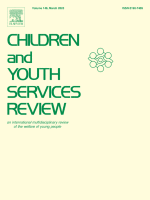Abstract
This conceptual article describes how, in terms of organization theories, shifts in the chronological transition to adulthood produce “weak” constellations of participation during the process of leaving care. In contrast, the professional discourse on participation is dominated by concepts that ultimately call for “strong” constellations as a means of enabling participation. In that discourse, participation is seen as being governed by the organizational structure of the child and youth care services, which, for example, determine the chronology of the steps taken by care leavers (e.g., moving out of their residential home or the foster family) and thus also affect their opportunities for participation.
Altogether, chrononormativities are seen to play a prominent guiding role. Research into participation relating to child and youth care generally pays little attention to emerging adulthood: the professional debate mainly relates to the UN Convention on the Rights of the Child (UNCRC), which focuses on the age of majority as its biographical milestone.
For this reason, this article starts out by summarising the research on participation during the process of leaving care. Three analyses of contemporary society taken from youth studies will then be used to describe the chronological arrangements young people currently experience during this transition. First, the authors examine the dynamics influencing young people’s biographies during emerging adulthood in some countries and affecting their opportunities for participation. Second, they focus on the varied range of life circumstances, coping situations and social disadvantages facing care leavers. Third, they study how the “beyond Covid” situation is affecting care leavers. Finally, they argue that in view of these unclear chronological transitional constellations during the process of leaving care, it would be fruitful for research on participation to examine “weak” constellations of as a means of identifying and analysing different signals through which people make their voices heard.
This understanding of participation against the background of leaving care will make it possible to recognise not just “strong”, activating forms of participation, but also different degrees of participation and ways in which it is expressed.

